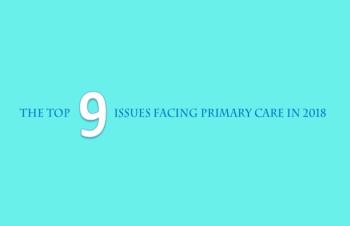
What physicians need to know when reviewing contracts

What physicians need to know when reviewing contracts

The proposed rules released by the Department of Health and Human Services Office of Inspector General (OIG) and the Centers for Medicare & Medicaid Services (CMS) in October 2019 include new exceptions and safe harbors, as well as clarifications to the Physician Self-Referral (Stark) Law, the Anti-Kickback Statute and the civil monetary penalty prohibition against beneficiary inducements.

The goal is to boost the adoption of value-based care, promote coordinated patient care and foster better health outcomes

President Trump signed an executive order to find ways to boost Medicare Advantage as a pre-emptive strike against Democrats’ call for Medicare for All

How can the healthcare industry better encourage doctors to practice in rural settings?

The federal government is pushing forward with regulatory action that it hopes will end data blocking and promote more sharing of patient information.

Our readers speak out.

How a recently concluded jury trial in federal district court in Texas has major nationwide implications for existing and future marketing arrangements between medical facilities and doctors.

The Trump administration has proposed rolling back federal rules prohibiting discrimination in healthcare against lesbian, gay, bisexual, transgender, and questioning (LGBTQ) individuals that are part of the Affordable Care Act.

A proposed rule to limit rebates paid by drug companies to pharmacy benefit managers (PBMs) could negatively impact physicians, payers and patients.

Healthcare experts weigh in on the five new payment models for primary care

What should physicians say to their patients?

Sometimes it just isn’t worth going at it alone.

Groups representing primary care physicians said new state laws restricting abortion impede the physician-patient relationship and may jeopardize patient care.

The state of Washington has approved a law to offer a universally available public option to its residents.

In the case, Warren v. Dinter, the court ruled that the existence of a physician-patient relationship is not a prerequisite for a malpractice action.

Physician groups responded to the president's remarks on medical bills with some support and some concern.

Medicare ACOs that received bonus payments-even just one-were far more likely to remain in the program and succeed, according to a new study.

Senate Health Committee Chairman Lamar Alexander (R-Tenn.) is warning the Trump administration to not move “too far, too fast on implementing new rules on electronic health information.”

Physicians may be over-correcting their prescribing practices as a result of the opioid addiction crisis by cutting off patients that still need the drugs.

A joint study conducted by the Kaiser Family Foundation and the Los Angeles Times shows that workers with employer-sponsored health plans are in many cases struggling to cope with average deductibles that increased 212 percent between 2008 and 2018.

Under a new Trump administration rule, physicians and other healthcare workers can decline to provide certain healthcare services because of religious or moral reasons.

Is it legal for physicians to import medication for poor patients?

A slideshow of the biggest challenges facing primary care in 2018.

A new ACP position paper says Congress must strengthen the Affordable Care Act by creating a public insurance option and expanding Medicaid coverage in all 50 states.